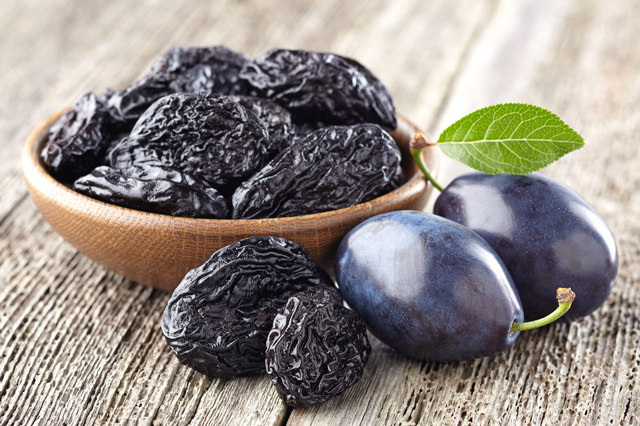Solve your health issues naturally with these science-backed home remedies
11/30/2022 / By Olivia Cook

Alternative medicines, such as Ayurveda, homeopathy, naturopathy and Chinese or Oriental medicine, have used organic plants, herbs, nuts and even fruits and vegetables to treat a myriad of illnesses for centuries.
The natural remedies presented here are based on ancient medicinal practices – natural therapies that have been proven effective time and time again.
Using natural remedies can offer situational relief from symptoms of mild to moderate issues such as headache or nausea.
If your symptoms persist, consult a natural health professional who can tell you whether these are signs of a potentially serious medical condition or disease.
Here are some safe, cost-effective and science-backed natural remedies that you can use in the comfort of your home. (Related: Revitalizing natural remedies for common complaints.)
Ginger or ginger root
Ginger, or ginger root, has many culinary applications. But it has also been used medicinally for hundreds of years for its stomach-settling effects – a natural remedy for morning sickness (a type of nausea and vomiting that can occur during early pregnancy).
A study published in the Journal of the American Board of Family Medicine suggests that ginger is an effective non-pharmacological treatment for pregnancy-induced nausea and vomiting, affecting the conceiving mother’s quality of life.
Ginger obstructs the serotonin receptors in the gut that cause nausea. The recommended amount is four cups (950 ml) of ginger tea to reduce nausea or calm an upset stomach (bloating, indigestion, vomiting, diarrhea or constipation).
Ginger’s anti-nausea properties are particularly effective during pregnancy or after surgery.
You can make it at home by steeping sliced or grated fresh ginger in hot water. Sip the tea slowly, as drinking it too quickly may increase your nausea.
You can also try frozen ginger chips. First, infuse fresh ginger in hot water. Strain, then freeze the concoction in ice cube trays. Crush the cubes and suck the icy chips throughout the day to provide your tummy with a steady soothing dribble.
Chicken soup
There’s nothing like a bowl of chicken soup when you’re sick – and it turns out that the chicken soup remedy for colds is backed by science.
A study published in the journal Chest showed the anti-inflammatory effect of nourishing food, like chicken soup, which has been supported by more recent research, including a study published in the American Journal of Therapeutics that supports chicken soup as a cold remedy.
In the new study, researchers found that chicken soup contains a number of substances with beneficial medicinal activity, including anti-inflammatory properties that could ease the symptoms of upper respiratory tract infections.
Apples
Apples offer a long list of healthful benefits. They are a good source of calories, carbohydrates, fiber, vitamins (vitamins B1, B6, C, E, and K), minerals (calcium, copper, potassium) and antioxidants (polyphenols) that protect your cells from free radicals that contribute to the development of chronic conditions (heart disease, cancer).
A raw apple with skin contains up to 142 percent more vitamin A, 115 percent more vitamin C, 332 percent more vitamin K, 20 percent more calcium and up to 19 percent more potassium than a peeled apple. (Related: Don’t get rid of the skin of the fruit: Apple PEEL is PACKED with nutrients your body needs.)
Apples can relieve both constipation and diarrhea – they just have to be eaten differently.
For constipation, eat apples with the peel. The insoluble fiber found in the apple peel (skin) increases the bulk of the stool and helps it in making a quick passage through the intestines.
According to a study published in the American Journal of Clinical Nutrition, women who regularly ate apples were found to have 13-22 percent fewer constipation problems than those who didn’t eat this fruit.
For loose bowel movement or diarrhea, eat apples without the skin. Soluble fiber is found in the inner part of the apple (pulp and flesh) and it is what forms a gel-like consistency in your stool and slows down digestion.
Eating apples, including their skin, supports sensible weight management goals (especially when combined with a healthy diet and regular physical exercise). It is worth noting that apples are particularly filling due to their high fiber and water content and polyphenols that have anti-obesity effects.
Dentists also recommend eating apple with the peel on. The apple’s skin, which is high in fiber, scrubs against your teeth and helps remove plaque and coffee/tea stains – essentially serving as a natural toothbrush.
However, apples contain acids and sugar that can damage teeth, so swish your mouth with water afterward to rinse them off.
Raisins
The shriveled yellow, brown or purple morsels known as raisins are dried grapes that are rich in fiber, vitamins, minerals and phytochemicals (e.g., phenolic compounds), whose antioxidant capacity has been scientifically correlated to supporting cardiovascular health.
When eaten in moderation, raisins can aid digestion, boost iron levels and keep your bones strong.
Eat raisins to help with high blood pressure. In a study published in the journal Nutrients, patients who consumed raisins showed significantly higher total antioxidant potential and reduced diastolic blood pressure.
Scientific evidence suggests that eating fruits with high amounts of flavonoids, including raisins, results in lowering blood pressure, especially in patients with Type 2 diabetes, which is a risk factor for cardiovascular disease.
Mother Nature has a variety of plants that can make you healthy – you just have to know how to use them.
Learn more about natural healing at Naturopathy.news.
Watch this video about five natural remedies for cough, cold and flu.
This video is from the Natural Cures channel on Brighteon.com.
More related stories:
Survival medicine: Natural remedies for minor health complaints.
Chinese herbal medicine made easy: Effective and natural remedies for common illnesses.
Sources include:
Submit a correction >>
Tagged Under:
This article may contain statements that reflect the opinion of the author
RECENT NEWS & ARTICLES
COPYRIGHT © 2017 SUPERFOODS NEWS



















